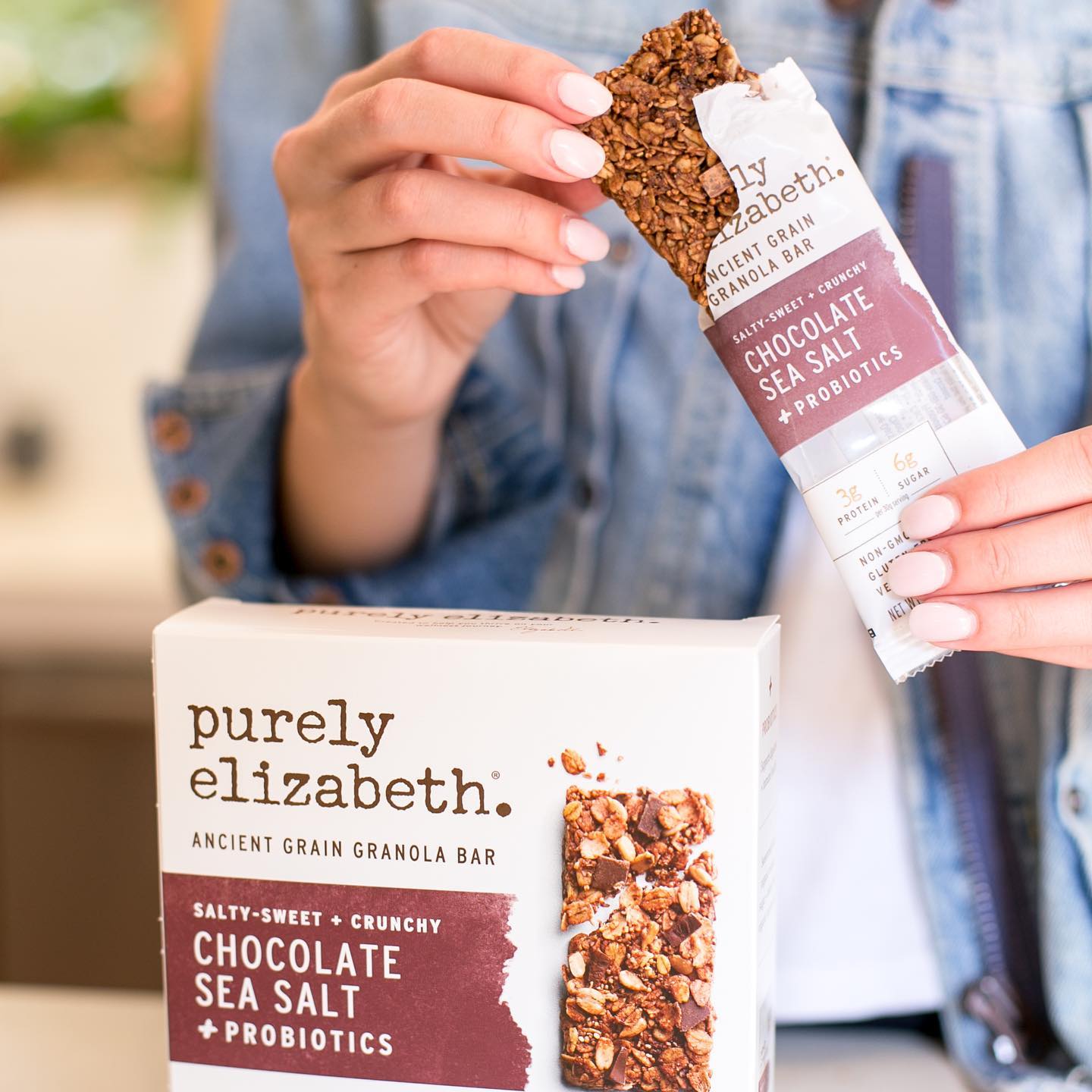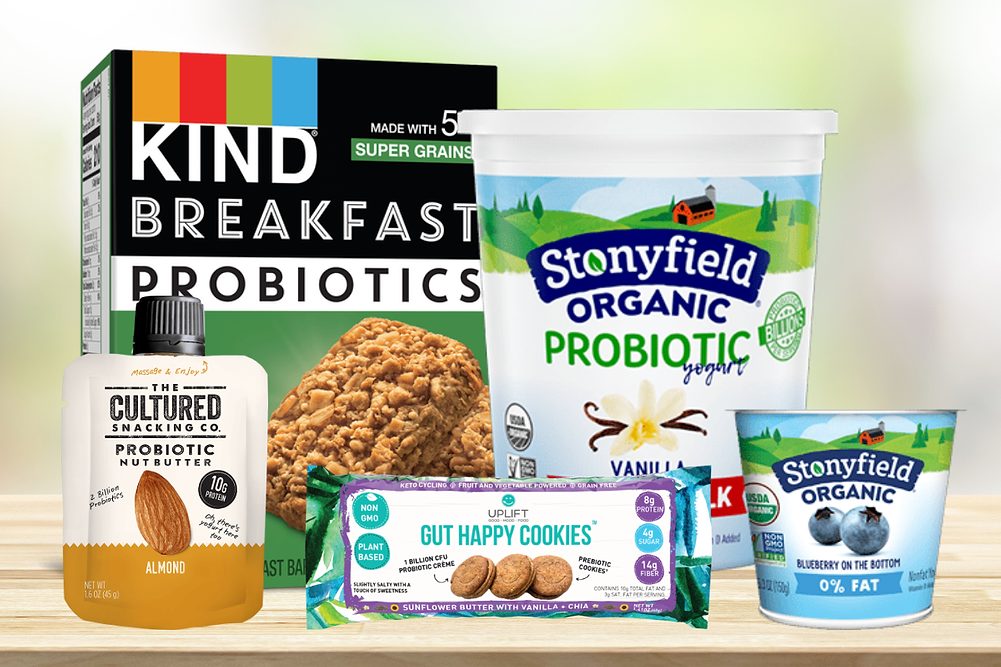KANSAS CITY — Probiotics and prebiotics are top choices for food and beverage formulators seeking to capitalize on consumer interest in healthy digestion. When working with probiotics, formulators should know what digestive claims are acceptable legally and how probiotic strains vary by health benefits and potential applications. Claims for prebiotic fiber will depend on the number of grams per serving.
Insight into digestion awareness was featured in the International Food Information Council Foundation’s 2020 Food and Health Survey. When asked what health benefits they sought, about 45% of respondents said digestive health, which ranked behind only weight loss/weight management, which was over 60%, and energy, which was over 55%. Among respondents in the survey, about 65% said they perceived probiotics as healthy, and nearly 45% said they perceived prebiotics as healthy.
When deciding upon a digestive claim for a food or beverage, probiotic supplier Lallemand, Inc., Montreal, advises turning to the International Probiotics Association for guidance. Foods containing probiotics may not claim to treat, cure, mitigate or prevent a disease, according to the IPA. Structure/function claims for food products containing probiotics often involve digestive and immune system health, but the claims must be truthful, not misleading and supported by adequate science.
The most used and applied probiotics include the Bacillus species such as B. subtilis Rosell-179, said James Kopp, vice president of marketing and product management for Lallemand. Other options are microencapsulated probiotics in foods such as confectionery, including chocolate, bars, spreads and fillings.
Joanna Wozniak, who works in special projects for Lallemand, added, “The primary probiotics that should be considered in (food and beverage) applications are the robust spore probiotic strains such as the Bacillus subtilis Rosell-179 as they have the broadest range of resistance to various food processes, including a range of baking parameters, and can therefore be added to foods, including some bread categories, cookies, bars, confectionery, snacks and non-alcoholic beverages, including kombuchas, juices and specialty waters.”
Probiotic claims may range from specific areas such as digestive and immune health to specific life stages or interests with examples being children or health, said Vanessa Bailey, global marketing lead for DuPont Nutrition & Biosciences, a business unit of DuPont. The claims depend on the sample group studied in the clinical trial associated with the strain or combination of strains.
“Ultimately, probiotic strains that have been studied clinically can be promoted on food and beverage products as beneficial for digestive health regarding basic aspects of the structure or function of the body,” Ms. Bailey said.
DuPont Nutrition & Biosciences offers two probiotic strains that may support digestive claims in food or beverage products. They are Howaru Dophilus – 10B CFU Lactobacillus acidophilus NCFM and Howaru Bifido – 1 B CFU Bifidobacterium lactis HN019.
“Our global network of application experts has studied the viability of these strains in a variety of formats,” Ms. Bailey said. “Some general guidance is that they tend to be more stable in foods that have a low water activity or moisture levels and beverages that have a low pH.
“It’s also important to not overheat lactic acid probiotics in the manufacturing or consumption process (i.e., avoiding products that need to be microwaved). We’ve had success formulating probiotics into products in the categories of fruit juices, granola bars with a chocolate or nut-butter coating, as well as in dry-blended beverages and dairy products such as yogurt.”

Manufacturers should be upfront with consumers about the specific strain used, its benefits and the research supporting the strain, said Don Cox, PhD, R&D director for Kerry, which has a US office in Beloit, Wis.
“Unfortunately, many products containing probiotics don’t live up to the hype,” he said. “The International Scientific Association for Probiotics and Prebiotics, for example, has warned that most consumers don’t fully understand the important distinctions between strains. Again, the answer is high-quality research. Scientific substantiation helps manufacturers and consumers alike understand the value of well-researched ingredients and make choices that support digestive health.”
Kerry offers GanedenBC30 (Bacillus coagulans GBI-30 6086). The probiotic strain has been shown to support digestive health at 1 billion colony-forming units (CFUs) per day.
“As a spore-forming probiotic, GanedenBC30 is highly resistant to extremes of pH, heat, cold and pressure,” Dr. Cox said. “It can remain viable through shelf life and the low pH of stomach acid, as well as processing conditions like shear and HPP (high-pressure processing) pasteurization. This resilience means it can be used in an extremely wide range of everyday food and beverage categories, including ready meals, snacks, cereals, energy bars, juices, smoothies and even peanut butter. The application possibilities are virtually endless.”
A Kerry survey in 2019 found 79% of Americans associate probiotics with providing digestive health benefits, he added.
Probiotics-prebiotics connection
Prebiotics work in tandem with probiotics in that they stimulate growth of healthy bacteria in the colon such as bifidobacteria and lactobacilli and promote healthy digestion.

Arrabina from Comet Bio, London, Ont., is a recent ingredient addition to the prebiotic fiber category. It is an arabinoxylan plant fiber extract upcycled from farm leftovers such as stalks, leaves and hulls.
Adding three grams of prebiotic fiber per serving to products allows food and beverage companies to claim the products support growth of beneficial microbiota (bifidobacteria) in the gut, said Loula Merkel, vice president of business development for Comet Bio. Arrabina, a soluble powder with low viscosity, so far has been used predominantly by supplement manufacturers and protein powder companies, she said.
“As consumer awareness of prebiotics grows, Comet Bio sees Arrabina utilized in more formats like beverages, baked goods and even confectionery, given its excellent functionality,” Ms. Merkel said.
Inulin sourced from chicory root became a popular way to add prebiotic fiber early in the century.
“Studies have shown that 5 grams of chicory root fiber per day not only add fiber to the diet but can also help feed normal beneficial bacteria in the gut,” said Pam Stauffer, global marketing programs manager for Cargill, Minneapolis. “Consuming at least 5 grams of chicory root fiber per day supports a healthy microflora in the digestive tract.”
Infant foods are potential applications for inulin.
Scientific studies have shown that inulin and oligofructose stimulate the growth of beneficial bacteria in the large intestine, leading to healthier colonic microbiota, according to Sensus, which has a US office in Lawrenceville, NJ. This prebiotic effect enhances the bifidobacterial, which is desirable for infant food, and stimulates short chain fatty acids production in the colon that improve the working of the intestine.
Beneo, Inc., Parsippany, NJ, points to a study conducted at the University of Pécs Medical School in Hungary that demonstrated daily consumption of chicory root fiber in children ages 3 to 6 kept the level of healthy bifidobacteria higher and more stable. A randomized, double-blind, parallel, placebo-controlled trial, the study involved the supplementation of 6 grams of chicory root fiber, using maltodextrin as the control, among 258 healthy children over a 24-week period.
COVID-19 could impact the market for prebiotics and probiotics as more people seek health benefits. A survey released in April by FMCG Gurus, a market research company based in the United Kingdom, asked 23,000 respondents whether they had become more concerned about their immunity because of COVID-19. The percentages who said they were more concerned were 57% globally, 61% in South America, 59% in North America, 58% in Europe, 55% in Asia-Pacific and 51% in Africa-Middle East.
“Research suggests that over 70% of our body’s immune system resides in the gastrointestinal tract,” Ms. Merkel said. “Prebiotics fuel the growth of good bacteria in our gut, especially bifidobacteria and lactobacilli probiotic strains. The increased presence of beneficial bacteria is thought to support immunity by inhibiting the growth of pathogenic bacteria. This is important as clinical research shows that having imbalances of good versus bad bacteria in the microbiome may disrupt the normal functioning of our immune responses.”





